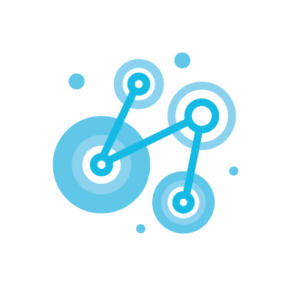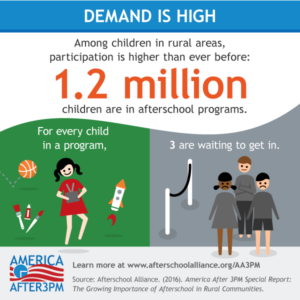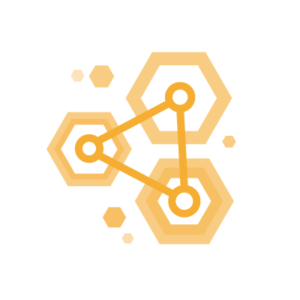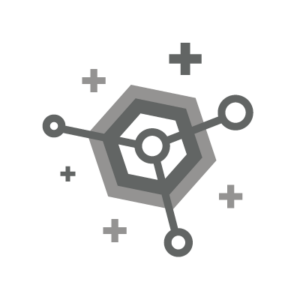News, resources and ideas for cross-sector collaborations that engage STEM learners everywhere
OPPORTUNITIES FOR ECOSYSTEMS
 Boosting Kids’ Math Skills — Opportunity to Participate in Bedtime Math Pilot — Bedtime Math is a free app providing parents with a fun nightly math problem to do with their kids (ages 3-9.) Each post starts with a brief fun story, followed by three levels of math questions. The app gives parents a quick, easy way to talk about math with their kids and has been shown through research by the Univ. of Chicago to boost kids’ math skills. (See Science article and NPR interview). Bedtime Math is seeking five districts interested in expanding initial success in Newark NJ introducing the app during parent-teacher conferences. If your Ecosystem has an interest in participating, please contact Diana Pecina at diana@bedtimemath.org. Bedtime Math will be featured in April at the White House Early Learning Summit.
Boosting Kids’ Math Skills — Opportunity to Participate in Bedtime Math Pilot — Bedtime Math is a free app providing parents with a fun nightly math problem to do with their kids (ages 3-9.) Each post starts with a brief fun story, followed by three levels of math questions. The app gives parents a quick, easy way to talk about math with their kids and has been shown through research by the Univ. of Chicago to boost kids’ math skills. (See Science article and NPR interview). Bedtime Math is seeking five districts interested in expanding initial success in Newark NJ introducing the app during parent-teacher conferences. If your Ecosystem has an interest in participating, please contact Diana Pecina at diana@bedtimemath.org. Bedtime Math will be featured in April at the White House Early Learning Summit.
ECOSYSTEM NEWS
![CIPF for Marcella[1]](https://stemecosystems.org/wp-content/uploads/2016/04/CIPF-for-Marcella1-300x199.jpg) Ventura County STEM – Highlighting a federal program providing free passes to national parks for fourth graders across the country in 2016, Secretary of the Interior Sally Jewell and U.S. Representative. Lois Capps of Santa Barbara distributed free park passes to more than 90 fourth graders from the Grace Thille School in Santa Paula as they headed on a boat trip to Channel Islands National Park last month. The trip was partially funded by Channel Islands Park Foundation, a partner of VC STEM.
Ventura County STEM – Highlighting a federal program providing free passes to national parks for fourth graders across the country in 2016, Secretary of the Interior Sally Jewell and U.S. Representative. Lois Capps of Santa Barbara distributed free park passes to more than 90 fourth graders from the Grace Thille School in Santa Paula as they headed on a boat trip to Channel Islands National Park last month. The trip was partially funded by Channel Islands Park Foundation, a partner of VC STEM.
The federal program, Every Kid in A Park, allows fourth graders nationwide to obtain a pass for free entry for them and their families to more than 2,000 federally managed lands and waters nationwide for an entire year starting September 1, 2015 – August 30, 2016. Please share this opportunity widely with your ecosystems – go to https://www.everykidinapark.gov/about/ and scroll down to Tools to download posters and brochures in English and Spanish, and Press for a downloadable media kit.

Boston’s Summer Learning Approach Inspires New Legislation — Catalyzed by the Boston Summer Learning Community – the Boston Public Schools, Boston After School & Beyond, and the Boston Opportunity Agenda – state policymakers are considering new legislation that would expand summer learning programs in high need districts in Massachusetts. A report by Give A Summer of Boston entitled Why youth access to summer opportunities matters and how we can understand and increase it resulted from surveys of 500 students and 200 parents at 5 Boston area public middle schools. A key takeaway: All schools had a substantial minority of students who were interested in attending a summer program but did not end up going to one. Read the full report.
Frontiers in Urban Science Education Winter Institute — At the FUSE Winter Institute in in February, Every Hour Counts convened 45 leaders in youth development, education, and informal science from seven cities to share their thinking on how to infuse STEM learning in-and out-of-school with social-emotional skill-building and exposure to the practices of scientists and engineers detailed in the Next Generation Science Standards. The Boston, New York, Providence, Baltimore and Chicago ecosystems participated. Read more about FUSE.
Oregon Statewide Afterschool Network Leader Recognized by White House – Congratulations to Beth Unverzagt of Oregon ASK, a partner in Oregon’s ecosystem, for her recognition last month by the White House in bringing high-quality summer learning to youth. Oregon ASK is one of 17 state networks supported by the Mott and Noyce Foundations to broaden access to high-quality STEM for kids by focusing on afterschool programs. Oregon ASK’s STEM Mentors Toolkit helps organizations engage, train, and sustain STEM volunteer and mentor relationships with STEM professionals. Learn more about what is happening in Oregon.
News from the OC STEM Ecosystem Institute – The OC STEM Initiative has been busy! Learn about what they’ve been up to. Be sure to share what is happening with your ecosystem, too!
NEW RESEARCH, REPORTS & JOURNALS
New Science Journal Connects In and Out-of-School Science Education: The new Connected Science Learning journal by the National Science Teachers Association (NSTA) and the Association of Science-Technology Centers (ASTC) included articles by Bronwyn Bevan and John Falk examining STEM learning ecosystems. Issue 2 — focusing on professional development –will be released in fall 2016. The next manuscript submission deadline is June 30, 2016. Sign-up to receive Connected Science Learning
New Afterschool Alliance Report Highlights Rural Communities: A recent report by the Afterschool Alliance focused on afterschool in rural communities found that rural afterschool  programs are less likely to offer STEM programming and technology learning opportunities than programs outside of rural communities. Download new infographics to share findings from the report.
programs are less likely to offer STEM programming and technology learning opportunities than programs outside of rural communities. Download new infographics to share findings from the report.
A March report from the National Center for Education Statistics entitled Skills of U.S. Unemployed, Young, and Older Adults in Sharper Focus: Results from the Program for the International Assessment of Adult Competencies (PIAAC) 2012/2014 found that U.S. adults’ literacy skills are on par with international peers but math and technology skills lag. The Organisation for Economic Co-operation and Development (OECD) study includes data collected in 2012 from a representative sample of 16-65 year olds in 24 countries. The U.S. performed additional data collection in 2014 focused on the nation’s unemployed adults, which showed that smaller percentages of African American and Latino young adults scored at the highest proficiency level while larger percentages of the same subgroups scored in the lowest two proficiency levels than white young adults.
SPOTLIGHT
Pathways to Successful Careers After High School
 This month we are spotlighting strategies for equipping young people with the skills and knowledge to achieve post-secondary success, particularly for first generation low-income students considering higher education.
This month we are spotlighting strategies for equipping young people with the skills and knowledge to achieve post-secondary success, particularly for first generation low-income students considering higher education.
- In March, Achieve, Inc. released The College and Career Readiness of U.S. High School Graduates compiling data to assess college and career readiness in every state. The report shows that too few high school graduates are prepared to succeed in post-secondary education, the military, and careers, and illuminates gaps in what we know in answer to the question: are high school graduates prepared for post-secondary success?
- The American Youth Policy Forum has a discussion group brief exploring how policy and practice can better support first-generation, low-income (FGLI) students. FGLI students often face unique and significant barriers to educational attainment, and on average have lower rates of post-secondary enrollment and persistence than their more affluent peers with parents who went to college. George Knowles of the American Youth Policy Forum discusses Washington state’s strategies to ensure students are involved in career planning early and often. A school counselor offers three simple questions to get students thinking: Who am I? What would I want to become? And how do I get there?
- The Harvard Family Research Project offers The Staying on the Path Toward College Interactive Case, designed to help educators understand the home, school, peer group, and community factors that influence decisions Latino youth might make during the transition to middle school, and it explores ways that families, schools, and youth-serving community organizations can work together to ensure that all children have the opportunity to pursue higher education.
- America’s Promise Alliance reminds us that it is all about relationships with its follow up release to the 2014 Don’t Call Them Dropouts Report. The new study, Don’t Quit on Me: What Young People Who Left School Say About the Power of Relationships, includes perspectives of young people on the roles that relationships with adults and peers play in decisions about staying in, leaving and returning to high school. From the introduction: “They told us they need respect, not judgment. They need resources — bus passes, a ride to school, a meal, a job, a chance. They need people to show care through actions, not advice. They need an anchor, not a hero. And they need a web of support, a healthy, supportive community of their own.”
- Get Smart’s recent publication Next Generation Career Pathways: A Manufacturing Case Study (in partnership with GPS Education Partners) explores how the rise of anywhere, anytime learning and competency-based approaches opens the door for Career and Technical Education programs to help connect high school students to manufacturing careers. Download the full paper.
- The Center for American Progress’s report, Utilizing National Service as a 21st Century Workforce Strategy for Opportunity Youth, will be of particular interest to those ecosystems pursuing VISTA volunteers. This report includes strategies to build capacity and incentivize states to leverage funding streams in order to expand service programs for opportunity youth and marginalized adults, and to create youth opportunity service-learning awards. It also includes six recommendations to strengthen the existing national service system as a workforce development strategy.
OTHER NEWS AND RESOURCES
Narrowing the Digital Divide – Lifeline is a federal program that provides low-income families $9.25/month to help reduce the cost of phone service. The Alliance for Excellent Education is leading an advocacy effort to ensure families can use this subsidy to pay for internet access at home so that students are better equipped to do well in school. Learn more from this fact sheet.
New Initiative Aims to Better Prepare Principals – The Wallace Foundation has launched a five-year, $47 million initiative to help universities improve how they prepare future principals, especially for the highest-need schools. The new initiative will fund the redesign of up to six university programs, which will be asked to carry out their efforts in partnership with school districts. The university initiative comes on the heels of a new Wallace report.
U.S. Chamber of Commerce Foundation Changing the Debate in Quality Assurance in Higher Education. A new report from the U.S. Chamber of Commerce notes that “According to a survey by Gallup, only 11% of business leaders perceive college graduates to be ready for work, whereas 96% of chief academic officers in our nation’s colleges believe students are adequately prepared to start their careers.” The Chamber calls for “a voluntary, employer-driven talent supplier recognition and certification system—one that can complement the existing accreditation system and be used to improve government-supported quality assurance systems over time.”
Wallace Foundation Social/Emotional Learning Survey for Afterschool Stakeholders – The Wallace Foundation is seeking your perspective on social and emotional learning in after-school. Please take the survey here.
EVENTS
Apr. 6, 1:00 P.M. – 2:00 P.M. ET: Learn to Speak “STEM-ish:” Translating Afterschool STEM to Boost Public Support
About this webinar:
Want to help afterschool STEM blast off in your community? Do you struggle to convince your stakeholders that afterschool must be at the table for conversations about improving STEM education? The FrameWorks Institute has recently completed a multi-year study of the messages about afterschool and STEM that expand people’s support and those that are not productive. This is a two-part, interactive webinar series to learn how the FrameWorks Institute’s research-based communications strategies boost public support for afterschool STEM programs. We will review common communications traps that can weaken your messages’ effectiveness and practice staying out of those traps by applying tested tools that work to increase people’s understanding of informal STEM learning, how it works, and why it matters.
Part 1 of the webinar, on April 6, will introduce some of the tools and communication tips. Part 2 of the webinar, on May 3, will showcase the remaining tools and address any questions that come up as you start to apply these in your own work. Click here to register
Speakers:
* Jenn Nichols; Senior Associate, Learning Team, FrameWorks Institute
* Anita Krishnamurthi, Vice President for STEM Policy, Afterschool Alliance
April 11-14, 2016: National Summit for Educational Equity (NSEE), Alexandria, VA
NSEE brings together leaders in educational equity to build capacity, knowledge, and skills to transform education and improve student success. Register.
April 16-17, 2016: 4th USA Science & Engineering Festival. Walter E. Washington Convention Center, Washington, D.C. More details.
May 18-20, 2016: U.S. News STEM Solutions 5th National Leadership Conference, Baltimore, MD. Focused on how we can teach, inspire and hire the workforce of tomorrow by building skills and increasing STEM diversity. The STEM Learning Ecosystems Initiative will also announce Cohort 2 at the conference. Register.
July 10-12, 2016: Computer Science Teachers Association (CSTA) Annual Conference, San Diego, CA. CSTA 2016 is a professional development opportunity for CS and IT teachers/administrators who need practical, classroom-focused information to help prepare their students for the future. Register.
September 24–27, 2016: ASTC Annual Conference hosted by the Museum of Science and Industry in Tampa, Florida – partner in the Tampa Pay STEM Network ecosystem. Register.
FUNDING NEWS AND OPPORTUNITIES
Funding: Society Advocate Grant. Deadline: April 13, 2016
The Society for Science & the Public Advocate Grant provides a $3,000 stipend for adults to support underserved students (6th-12th grade) in submitting their work to science research competitions. Complete the application by clicking here (or cut and paste the URL ssp-advocate-grant.fluidreview.com into your browser).
2016 Summer Opportunities Funding Resource Guide
Developed in collaboration with the National Summer Learning Association, Civic Nation, and the U.S. Department of Education, the Guide helps state and local leaders identify the most  promising funding streams to support summer learning and to show how innovative states, districts and communities have creatively blended public and private funding to develop programs, services and opportunities to meet the needs of young people during the summer months. Explore the roadmap!
promising funding streams to support summer learning and to show how innovative states, districts and communities have creatively blended public and private funding to develop programs, services and opportunities to meet the needs of young people during the summer months. Explore the roadmap!
Funders’ Guide to Quality in OST
Grantmakers for Education’s Out-of-School Time Funder Network has published a Funders’ Guide to Quality in Out-of-School Time that provides suggested principles and strategies for how funders can leverage their investments in out-of-school time to ensure high quality programs.
Science Learning+ Partnership Grants. Deadline: June 14, 2016
Science Learning+ is a partnership among the the National Science Foundation, the UK’s Wellcome Trust, and the UK’s Economic and Social Research Council (ESRC). Three US foundations are participating in supporting the initiative: the MacArthur Foundation, the Gordon and Betty Moore Foundation, and the Noyce Foundation. The aims of Science Learning+ are to strengthen the research and knowledge base; bridge the practice and research gap; and/or share knowledge and experience in informal science, technology, engineering and mathematics (STEM) experiences. Furthermore, the initiative seeks to support practice-based research which falls within or across the following priority areas: understanding learning; engagement in STEM; skills development; equity; diversity; access to informal learning settings; and measurement of outcomes. To access more information click here and to access the RFP click here.
Funding: NSF INCLUDES (Inclusion across the Nation of Communities of Learners of Underrepresented Discoverers in Engineering and Science). Deadline: Required preliminary proposals: April 15, 2016. Full proposals: June 24, 2016
NSF Inclusion across the Nation of Communities of Learners of Underrepresented Discoverers in Engineering and Science (NSF INCLUDES) is a comprehensive initiative to enhance U.S. leadership in science and engineering discovery and innovation by proactively seeking and effectively developing STEM talent from all sectors and groups in our society. The overarching goal of NSF INCLUDES is to create a sustainable collaborative process for the inclusion in STEM of women, members of racial and ethnic groups that have been underrepresented in STEM, persons with low socio-economic status and people with disabilities. NSF INCLUDES will improve the preparation, increase the participation, and ensure the contributions of individuals from groups that traditionally have been underrepresented in the STEM enterprise. Access the RFP.
Funding: STEM Expert Facilitation of Family Learning in Libraries and Museums. Deadline: May 1, 2016
Museums and libraries can apply for these grants for design-based research projects that develop and explore models for inquiry-based STEM programs delivered by scientists, engineers, and related STEM experts to children ages 6-10 and their families. In particular, proposals should address the role of expert storytelling, personal histories, and analogies as part of object-based science inquiry. Proposals should include information about how findings from this research will be applicable in both museum and library settings. Eligible: Museums and Libraries Awards: Up to $1M. View the opportunity.
The Connection includes ideas and resources to support your work cultivating STEM learning ecosystems in your communities. Please share ideas and news for inclusion with ktraphagen@stemnext.org.


